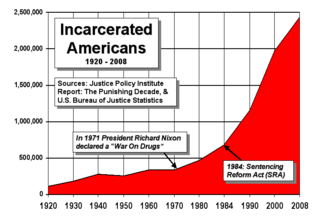A fascinating article from the National Review recently dove into a reasonable conservative perspective on the issue of mass incarceration that the United States, more so than any other advanced nation in the world, faces. While it is easy to critique the widely popular views that are championed by liberal politicians as well as lawyers and criminologists, Stephanos Bibas (University of Pennsylvania professor of law and criminology) argues that conservatives need to also rethink the way our laws and policies help shape this controversial issue.
Bibas’ main argument for the inadequacy of both the liberal and current conservative views on mass incarceration is that the liberal view is misleading in terms of the reasons that result in high numbers of individuals ending up in prison. The conservative view, on the otTruly her hand, is out of line, Bibas says, with what are considered traditional conservative values that prioritize the family structure and communities – which incarceration quite often disrupts.
Politicians like President Obama and lawyers like Michelle Alexander, who is also the writer of the most popular and widely read book on the very topic, The New Jim Crow: Mass Incarceration in the Age of Colorblindness (2010), argue that mass incarceration is largely due to racially charged policies that disproportionately target minorities for nonviolent crimes. To add to that, sentencing, in recent times, has become longer, harsher, and the punishment is far from over after release. In this view, mass incarceration is said to be similar to the Jim Crow era laws that unjustifiably kept African-Americans and other minorities from holding certain jobs, voting, and owning property solely based on their race. The similarity is seen in that convicted felons face similar restrictions upon their release. The merit of this view is that by facing such penalties, especially for nonviolent crimes usually related to drug possession, people are often unable to reintegrate into society, the family structure and their community. The inability to reintegrate, much less find gainful employment, is a creator of career criminals.
Taking that into consideration, conservatives and liberals are certainly in agreement when we look at this from a traditional conservative stance, which Bibas champions over the liberal stance. In his argument, mass incarceration is not due to underlyingly racist policies that target one group over another for nonviolent crimes. To back this, he points to prison growth throughout the 1980’s, 1990’s, and 2000’s being driven not by the incarceration of nonviolent drug offenders, but by criminals who were sentenced for violent or property crimes:
“Fordham law professor John Pfaff has shown, more than half of the extra prisoners added in the 1980’s, 1990’s, and 2000’s were imprisoned for violent crimes; two thirds were in for violent or property crimes. Only about a fifth of prison inmates are incarcerated for drug offenses, and only a sliver of those are in for marijuana.”
Of those incarcerated for drug offenses, many have prior convictions for violent crimes as well, and Bibas points out how tougher and more consistent prosecutors have led to more offenders being charged with felonies as opposed to 20 years ago. So it is not merely a racial problem as a majority of those incarcerated have, in fact, committed violent or property crimes which carry their own long sentences.
Conservatives can critique the liberal view presented above that largely blames the issue on racism, ignoring the facts about incarceration, but that doesn’t mean conservatives should wholeheartedly defend the system as it is. In fact, wholeheartedly defending the current system as is goes far to contradict conservative values:
“Conservatives also need to care more about ways to hold wrongdoers accountable while minimizing the damage punishment does to families and communities. Punishment is coercion by the state, and it disrupts not only defendants’ lives but also their families and neighborhoods. Contrary to the liberal critique, we need to punish and condemn crimes unequivocally, without excusing criminals or treating them as victims. But we should be careful to do so in ways that reinforce rather than undercut conservative values, such as strengthening families and communities.”
This is an argument that rings very true, and in many ways it is an argument that doesn’t dismiss the other side’s views but instead tackles the issue from a different perspective which leaves us open to new options for creating the necessary tools and institutions that can serve to ensure that we don’t further disrupt struggling communities in our efforts to combat crime and keep those very communities safe.
To read the National Review article click here.

